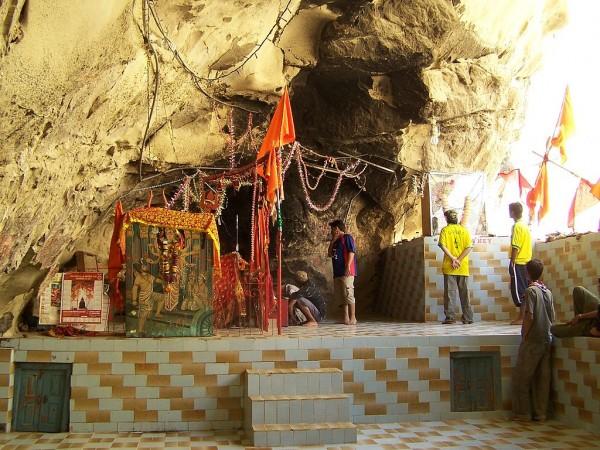
Around 80 women finally re-entered the Haji Ali Dargah in Mumbai at 3 pm on Tuesday after a five-year-long legal battle. Haji Ali Dargah is the shrine of the 14th-century saint, Sayed Peer Haji Ali Shah Bukhari.
For a long time women had been prohibited to enter the inner sanctum of the shrine by the Haji Ali Dargah Trust because if they entered, women would be in close proximity with a male saint, which is regarded as a sin. The Trust had argued that the ban was put in place for the safety of women devotees because of huge crowds visiting the shrine.
There are several religious places in India where women are not allowed to enter such as the Shani Shingnapur Temple in Maharashtra, until the Bombay High Court lifted the ban and said that women could not be barred from entering the temple.
However, it is a lesser known fact that there are temples in India where men are not allowed to enter at all or can enter on particular days. There are temples where entry is permitted only to women. Here is a list of eight temples in India where men are not allowed to enter:
1. Attukal Temple:
The Attukal Bhagavathy Temple, a temple located in Kerala that worships women, has made it to the Guinness Book of World Records for hosting the Pongala festival which sees around three million women participate. Men are not allowed to enter the temple that sees the largest gathering of women during the festival.
2. Chakkulathukavu Temple:
Another temple located in Kerala that worships Goddess Bhagavathi and observes an annual ritual called 'Naari Puja' in which the male priest washes the feet of women devotees fasting for 10 days on the first Friday of December. The day is called Dhanu. During 'Naari Puja', only women are allowed to enter the temple.
3. Santoshi Maa 'Vrat':
The 'vrat' for Santoshi Maa is observed strictly by women or unmarried girls. They are prohibited to eat sour fruits or pickles during that period. Males are allowed to enter the temple to worship the goddess but are strictly prohibited from entering the premises on Fridays.
4. Lord Brahma Temple:
This 14th century temple located in Pushkar in Rajasthan prohibits married men from entering its premises. This is the only Brahma temple in the world.
The Puranas suggest that Lord Brahma had performed a yagna at Pushkar Lake with his wife Goddess Saraswati who got late for the event. Therefore, Lord Brahma married Goddess Gayatri and performed the ritual due to which Goddess Saraswati cursed the temple saying that "no married man is allowed to visit the inner sanctum otherwise a trouble will arise in his marital life."
This is the reason men are not allowed to enter this temple.
5. Bhagati Maa Temple:
This temple, located in Kanyakumari, worships Kanya Maa Bhagawati Durga who is said to have gone to an isolated area in the middle of the ocean for Tapasya so that she could ask for Lord Shiva as her husband.
According to the Puranas, the spine of a Sati fell on the shrine. The goddess is also known as the Goddess of Sanyasa.
Due to these reasons, sanyasi men are allowed till the gate of the temple, while married men are prohibited from entering the premises.
6. Mata Temple:
During a particular period, men are strictly prohibited to enter this temple located in Muzaffarpur in Bihar. The rules are so strict that even a male priest is not allowed to enter the premises. Only women are allowed to enter this temple during that particular period.
7. Trimbakeshwar Temple, Nasik, Maharashtra:
Women were not allowed to enter the inner sanctum of this temple devoted to Lord Shiva till 2016 following which the Bombay High Court passed an order saying that even men shouldn't be allowed to enter the inner sanctum if women are not allowed. Since then, men have also been barred from entering to maintain gender equality.
8. Kamrup Kamakhya Temple, Assam
This temple permits only women to enter its premises during their menstrual cycle. Only female priests or sanyasis serve the temple where the menstrual cloth of Maa Sati is considered highly auspicious and is distributed to the devotees.
It is said that Lord Vishnu had cut Maa Sati with his Sudarshan Chakra due to which her waist fell on the spot where the temple has been built.

















